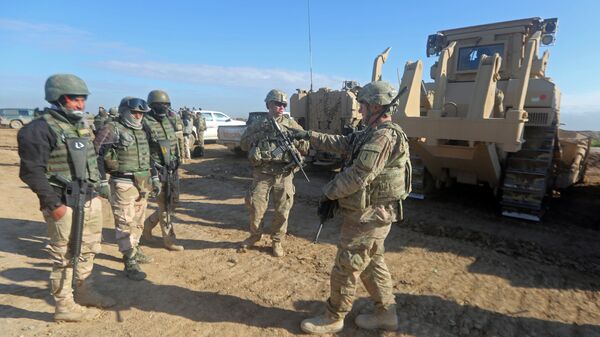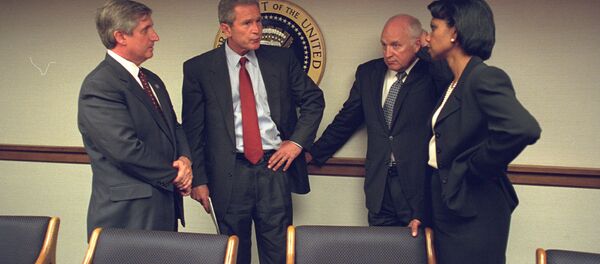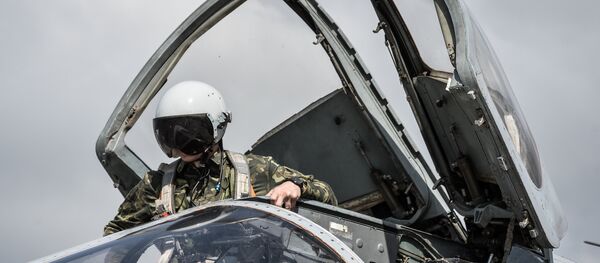Over ten years since the US invaded Iraq, Prime Minister Haider al-Abadi still struggles with problems in the newly formed government. Corruption, economic problems, and a splintered military; the lack of cohesion hinders Washington’s anti-terrorism efforts in the region.
Yet, during a visit to Baghdad last week, Secretary of State John Kerry indicated that the US would not be sending additional troops or equipment in support of the Iraqi Security Forces, but would instead focus on training.
"In the coming weeks and months, the coalition will work with Iraq to turn up the pressure even further," Kerry told reporters. "We will continue targeting and taking out Daesh leaders and we will train local forces to take and hold more ground."
During a state visit to India, Carter appeared to contradict Kerry’s claims.
"We’re going to accelerate the military campaign as fast as we can," he told reporters. "There’s no question that some of them depend upon political cohesion and progress in Baghdad. But also Erbil. But, we’re moving as fast as we can on the military campaign."
Carter, asked whether infighting in the Iraqi government would affect Pentagon plans, claimed that the "political part of the healing" can only take place after Daesh is "destroyed and the country is given back to its own people."
Still, Abadi’s political troubles could spell trouble for Carter’s plans.
"Carter’s talk of escalation being independent of the Iraqi political situation is perhaps unreasonable, as Prime Minister Abadi signed off on 3,870 US ground troops, but the Pentagon is openly talking about having closer to 5,000 troops in Iraq…" Jason Ditz writes for AntiWar.com.
Acknowledging the delicate situation in Baghdad, US Vice President Joe Biden expressed his support for a unified Iraqi government on Tuesday.
"The vice president conveyed continued US support for a unified, federal and democratic Iraq, and encouraged close cooperation between the government of Iraq and the Kurdistan regional government as they take steps to strengthen political unity and economic stability," a White House statement reads.
The Pentagon doesn’t just have its sights set on Iraq. Over the weekend, the Obama administration indicated that it may send an additional 250 special forces to Syria.
"We should no longer tolerate the kinds of positioning that is enabled by them having headquarters in Raqqa and Mosul," Obama said last week, referring to Daesh, in a meeting with military officials. "We’ve got to keep putting pressure on them."





